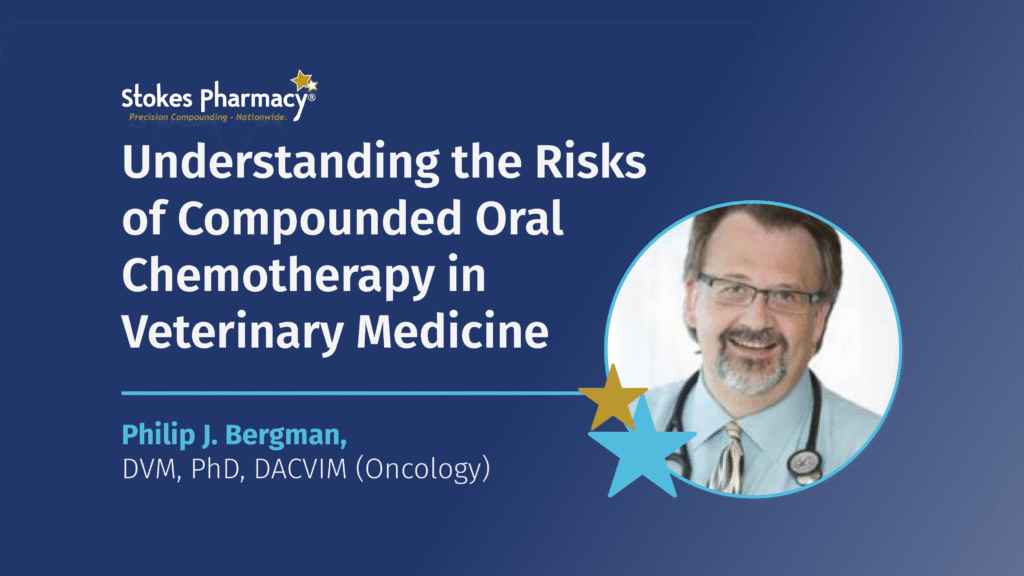
Compounded oral chemotherapy plays a vital role in veterinary oncology—particularly when commercial drugs aren’t available or when precise, individualized dosing is required. However, concerns persist about the accuracy and consistency of compounded formulations, which significantly impacts patient outcomes.
Our recent study, published in Veterinary and Comparative Oncology (DOI: 10.1111/vco.13003 ), set out to evaluate just how reliable these formulations are. Specifically, we investigated:
November is National Pet Cancer Awareness Month, a time to raise awareness about animal cancer care across species. As veterinary professionals focus on improving outcomes, Stokes Pharmacy and Epicur Pharma are ensuring the reliability of oncology medications in veterinary medicine.
Explore our unit-dose chemotherapy medications and learn about our new partnership that’s making targeted therapies for dogs more accessible.
To ensure a robust analysis, we designed the study with a diverse sample set and clear evaluation criteria:
Our analysis revealed several important insights into the accuracy and consistency of compounded chemotherapy capsules:
There are several real-world interpretations for veterinary oncologists can take from this study:
As one of the first to make chemotherapy tablets available to veterinarians nationwide, our brands have always been committed to ensuring that every dose delivers the safety and consistency patients deserve. Whether 503A or 503B, both of our brands uphold the highest quality standards so you can be confident in your patient care.
To contextualize these findings, it’s important to consider the strengths and limitations of the study:
Strengths:
Limitations:
Ultimately, this study reinforces the significant variability that exists in compounded oral chemotherapy—especially from traditional 503A pharmacies. Whenever possible, clinicians should:
Reliable drug delivery is essential for safe and effective cancer treatment. Understanding where your medications come from and how consistently they’re made can make a real difference in patient care.
Because of our commitment to improving patient outcomes, we offer various options through both Stokes Pharmacy and Epicur to ensure you can develop the best treatment plan for your patients’ needs.
From unit-dose chemotherapy tablets and manufactured mechlorethamine to the largest portfolio of targeted therapies for canine cancer through our partnership with Anivive, discover why clinicians trust and choose our medications.
At Stokes Pharmacy, we take a meticulous approach to compounding, ensuring every product meets rigorous consistency and reliability standards. As an FDA-regulated 503B outsourcing facility, Epicur Pharma adheres to the highest standards of quality and compliance. Backed by more than 150 years of combined experience, our team of chemists and pharmacists applies an exacting process to develop formulations that exceed USP requirements and our own uncompromising internal benchmarks.
Become a Stokes and Epicur insider to get our latest news and updates direct to your inbox.